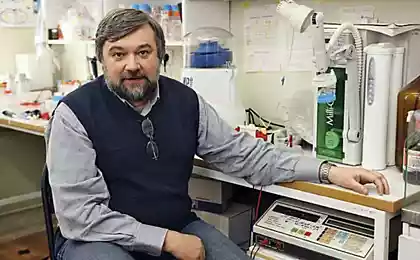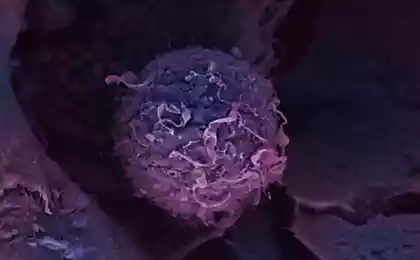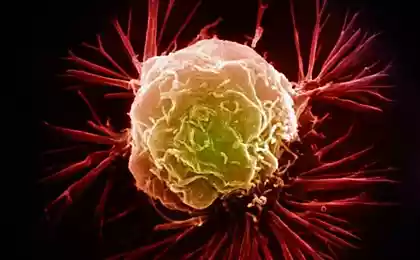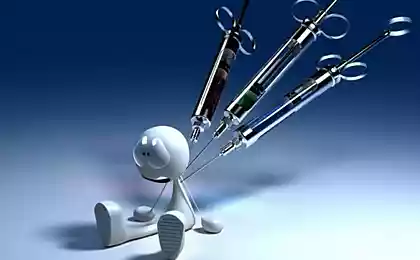545
GMO is responsible for the growth of cancer diseases

Deaths from cancer have doubled in areas of Argentina that uses GMOs.
A sharp increase in the frequency processing of plants by chemical substances in the regions of most intensive agriculture of Argentina led to disaster in the field of public health because of the high growth of cancer, according to Lawrence Woodward. The reason for this is the extensive use of GMO crops created with genetic resistance to herbicides.
The report of the Ministry of health of Argentina in córdoba province shows that the death rate from cancer is twice higher in the areas where they grow genetically modified plants and use of agro-chemicals (chemical substances used in agriculture) than the national average. The comprehensive report includes information on cancer cases over the past five years in the province. It shows that the industry, based on GM plants in agriculture is not a miracle, as it declares, and the hell with public health.
The highest mortality recorded in the "Pampa Gringa", where grows the most GM crops and used the greatest amount of agrochemicals. "Pampa Gringa" occupies the entire East of the province of córdoba and is its main agricultural region. The average number of deaths from cancer in Cordoba and 158 per 100,000 population, but in four departments of the "Pampa Gringa", the mortality rate is much higher — from 216 to 230. In other regions of Cordoba with intensive agriculture also noted a higher mortality rate from cancer in comparison with the average for the province and the country as a whole – from 180 to 201 per 100,000 inhabitants.
The number of cancers growing "as never before" because of pesticides
"Report on cancer in Cordoba 2004-2009 for years" — the result of an official study, which was prepared by the provincial tumor registry of Cordoba and the Department of census and statistics. His new version again sparked a wave of criticism of doctors and researchers about the delay by the government and unwillingness to take concrete measures.
Dr. Medardo Avila Vazquez (Dr. Medardo Avila Vazquez) of the University network for the preservation of the environment and health (Reduas) said: "what we complained about for years was confirmed and especially what doctors say about the sprayed towns and areas of industrial agriculture. The diagnoses of cancer is growing like never before in the areas of mass use of pesticides."
Dr. Fernando Manas (Dr. Fernando Manas) from the group on genetics and the environment at the National University of Rio Cuarto explores the effects of agricultural chemistry. He did not consider it a coincidence the growth of cancer diseases in agricultural areas. Researchers at río Cuarto have studied the population of Cordoba 8 years and was confirmed in 15 scientific publications, that people exposed to pesticides suffer from genetic disorders and are more prone to cancer.
Manas indicates that glyphosate — the herbicide used with most GM crops, and its main decay product AMPA (alpha-aminoethylethanolamine acid) was discovered in lakes, soil and even in rainwater in areas with the most intensive use of agrochemicals.
Government and business refuse to act
Verzegnassi Damian (Damian Verzeñassi) doctor and Professor of public health and environment at the faculty of medicine in Rosario says: "the Study of Cordoba matches the surveys we conducted in 18 districts of industrial agriculture. The number of cancer has grown rapidly over the past 15 years."
He sarcastically comments on the failure of the government and business to take preventative action, "They ordered studies of what is already proven, and has not taken action to protect the population. There is a lot of evidence that the current model of agriculture leads to serious consequences for human health. We're talking about a production model, which is a huge problem for public health."
Avila vázquez requires urgent action from the government to ban aerial spraying; guarantee that pesticides will not be used closer than 1000 meters from residential buildings; and ban the use of agrochemicals and spray machinery in urban areas. But all this can only be initial measures to curb the wide and massive use of pesticides, which are harmful to the health of the population of Argentina. The only long-term solution is to replace based on GM crops with intensive industrial agriculture, which Argentina and other countries are following on a genuinely sustainable, agro-ecological alternative.
Source: agracultura.org/























